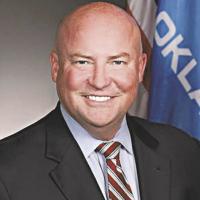Prioritizing Children’s Well-Being: The Importance of Food Assistance and Health Coverage Amid Government Shutdowns


In a commendable move to address food insecurity amid the suspension of Supplemental Nutrition Assistance Program (SNAP) benefits, Oklahoma’s state leaders have pledged to allocate million in weekly funding over the next seven weeks to the state’s two primary food banks. This initiative, supported by both Governor Kevin Stitt and key legislative figures, aims to alleviate the burden faced by countless families grappling with economic hardships.
The announcement comes in response to the pressing need for assistance as many Oklahomans find themselves in dire situations without the safety net typically provided by SNAP benefits. These funds will play a critical role in enhancing food distribution efforts, ensuring that vulnerable communities have access to necessary resources during a challenging period.
The Oklahoma Food Bank network, which includes the Regional Food Bank of Oklahoma and the Food Bank of Eastern Oklahoma, has been at the forefront of combating food insecurity in the state. This additional funding will bolster their capacity to serve families and individuals who may otherwise go hungry, especially during economic downturns.
While this financial commitment is a significant step forward, it also highlights a broader issue of food security in Oklahoma, a state where many households experience food deserts or limited access to nutritious food options. According to recent statistics, over 600,000 Oklahomans, including a substantial number of children, lack consistent access to enough food to lead a healthy life. This situation has been exacerbated by rising food prices and economic challenges stemming from the COVID-19 pandemic.
As noted by local advocates and community leaders, the support from the state government reflects a growing recognition of food insecurity as a critical public health and social issue. It is vital for state leaders not only to respond in times of crisis but to develop longer-term strategies that will address the systemic causes of hunger and poverty in the state.
In conclusion, the million commitment to food banks represents a crucial lifeline for many Oklahomans facing food insecurity. While immediate assistance is welcomed and necessary, it serves as a reminder of the persistent challenges that many families face and the continued need for holistic solutions to ensure sustainable food access for all residents of Oklahoma.






